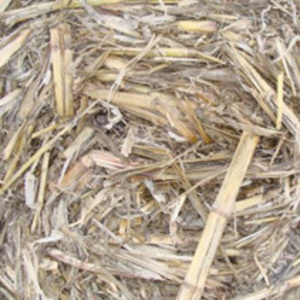USDA to request extension of residue, biomass field study




December 24, 2015
BY Erin Krueger
The USDA’s National Agricultural Statistics Service has published a notice announcing its intention to request a revision and extension of a currently approved information collection for a residue and biomass field survey.
According to a notice published in the Federal Register, the survey will use fields in the South Fork watershed in central Iowa as a sampling universe. The study will investigate the effect crop residue removal has on soil and water quality. According to the NASS, measurements of crop residues will be compared with remotely sensed data to measure crop residue cover and soil tillage intensity for the entire watershed. The requested extension is for three years.
Advertisement
Advertisement
Information published in the notice indicates the survey will be conducted in several phases. After obtaining permission from farm operators, field enumerators will return several times during the growing season to measure and collect samples from the target areas. Farm operators will be contacted two other times to collect additional data related to cropping practices performed during the growing season.
The information collection activities are expected to impact an estimated 100 respondents.
Advertisement
Advertisement
The NASS is inviting public comments on several aspects of the request. Comments are due Feb. 9. According to the notice, comments are invited on whether or not the information gathered will have practical utility and the accuracy of the agency’s estimate of the burden of the proposed information collection. Comments are also invited on ways to enhance the quality, utility, and clarity of the information to be collected, and ways to minimize the burden of the collection of information on those who are to respond.
Additional information is available on the Federal Register website.
Related Stories
The U.S. Department of Energy Bioenergy Technologies Office (BETO) announced up to $23 million in funding to support research and development (R&D) of domestic chemicals and fuels from biomass and waste resources.
The U.S. DOE has announced its intent to issue funding to support high-impact research and development (R&D) projects in two priority areas: sustainable propane and renewable chemicals and algal system cultivation and preprocessing.
Sens. Sherrod Brown, D-Ohio, and Pete Ricketts, R-Neb., in August introduced the Renewable Chemicals Act, a bill that aims to create a tax credit to support the production of biobased chemicals.
The Chemical Catalysis for Bioenergy Consortium, a consortium of the U.S. DOE’s Bioenergy Technologies Office, has launched an effort that aims to gather community input on the development of new biomass processing facilities.
USDA on March 8 celebrated the second annual National Biobased Products Day, a celebration to raise public awareness of biobased products, their benefits and their contributions to the U.S. economy and rural communities.
Upcoming Events










